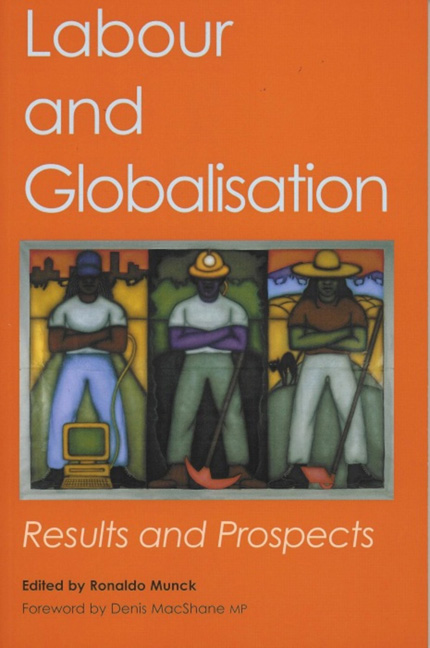Introduction: Globalisation and Labour Transnationalism
Summary
Globalisation is transforming the world in ways that we are only just beginning to understand. It is often assumed that social movements, such as that of labour, will simply be overwhelmed by these changes. Thus, in his influential threevolume study of the new globalised ‘information capitalism’, Manuel Castells, more or less in passing, notes that ‘the labour movement seems to be historically superseded’ (Castells, 1997: 360). The contributions to this volume point to this conclusion as at best premature and possibly also misguided. This introductory chapter sets the scene by critically examining and deconstructing the globalisation discourse(s). It then goes on to examine, in broad brush fashion, the responses of the labour movement to the challenges posed by globalisation (for more detail see Munck, 2002). Before turning to introducing the contributors to this volume, I examine some of the main theoretical and policy issues and controversies that have emerged in recent years around labour transnationalism in the era of globalisation.
Globalisation blues?
Rarely has a term suffered from such severe conceptual inflation as ‘globalisation’, which in less than a decade has come to dominate whole areas of research. Yet even as the texts proliferate (for a ‘state of the art’ report circa 1998 see Held et al., 1999), clarity and agreement seem even further away. For my part, I find persuasive the (presumably) slightly tongue-in-cheek but acute observation by Daniel Drache that ‘The simple truth is that one-third of the globalisation narrative is over-sold; one-third we do not understand because it is a process unfolding; and one-third is radically new’ (Drache, 1999: 7). If the term ‘discourse’ (as applied to globalisation) implies social construction, fluidity, and contested political terrain, the term ‘(meta)-narrative’, as deployed by Drache, points towards a grand endof- century mobilising myth, nonetheless real despite a component part (a nominal one-third sounding about right) being over-sold. My second starting point is that globalisation opens as many doors as it closes – perhaps just an article of faith at present, but one which I believe is borne out by a (re)reading of labour history and a sharper examination of current trends in labour–capital relations worldwide.
- Type
- Chapter
- Information
- Labour and GlobalisationResults and Prospects, pp. 1 - 16Publisher: Liverpool University PressPrint publication year: 2003



